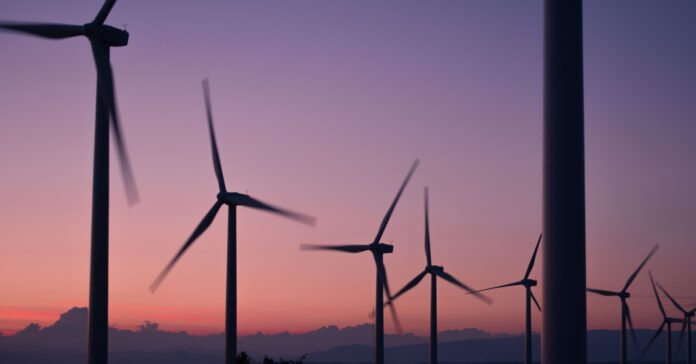There’s no need to fight for energy abroad when there is abundant energy right here in the United States, and western states, too long ignored by the federal government, are key to producing the energy that drives our economy, Interior Department Secretary Ryan Zinke said Wednesday.
“As a father and former [Navy SEALs] commander, I don’t want your children to see what I’ve seen, quite frankly,” Zinke said. “There’s a reason to fight but energy is not one of them when we have it here.”

Zinke was speaking at the Western Caucus 25th Anniversary Gala in Washington, D.C., hosted by the Western Caucus Foundation.
The foundation is a non-profit dedicated to “protecting private property, strengthening local control, promoting economic growth, and increasing energy independence.” U.S. Sen. Steve Daines (R-Mont.) and Rep. Paul Gosar (R-Ariz.) are honorary co-chairs.
“The voice of the west, the rural voice, has not been heard for a long time,” Zinke said. “The President has tasked me to bring the voice back, because rural America matters.”
With one fifth of the U.S. territory covering 12 time zones, Zinke said, Interior has a deep obligation to the citizens it serves.
“Energy is important to this country, and people ask me, ‘why?’” Zinke said. “It is better to produce energy in this country under reasonable regulation, than watch it get produced overseas with none.”
“If you don’t believe me, I’ll take you on a tour of the Middle East and Africa and show you how not to produce energy,” he continued.
“The economy is driven by energy. That’s not just gasoline in your car, but manufacturing as well,” Zinke said.
Along with cost of materials and labor, energy is a critical component of manufacturing the Interior chief declared.
And driving the energy boom has been technological innovation, like hydraulic fracturing, according to Zinke.
“This country has risen to the occasion. We’re producing 10.7 million barrels per day. We have surpassed Saudi Arabia. By the third quarter of this year, we will surpass Russia. We will be the largest producer in the world on oil and gas,” Zinke said.
The key to the overall energy success comes from an all-of-the-above approach that incorporates wind technology alongside oil and gas production to maximize domestic energy production for consumption and export.
“We are blind to types of energy [at Interior]; we just like American-made energy,” Zinke said.
More importantly, he cautioned, is the necessity of producing energy at home.
“I don’t ever want to be held hostage by a foreign nation for our energy needs,” he said. “Environmentally, economically, and morally, having energy made in America is the right thing and it’s definitely the right thing in the West.”
Other Interior priorities include National Park Service infrastructure funding, which enjoys bipartisan support, and Interior Department reorganization.
“We’re going to use the energy we’re producing onshore and offshore, the net goes into treasury, the rest comes out to fund our parks,” Zinke said.
“If you’re going to gain wealth on our public lands, then you should have a responsibility to pay for our public lands and infrastructure and make sure they are the same experience that we all grew up with,” he continued.
Untangling the overlapping and redundant framework applied to administration and permitting across multiple agencies and even departments, from the U.S. Forest Service to the Bureau of Land Management, Zinke said, is the primary goal of Interior reorganization.
“Same issue whether you are going to replace a bridge, repair a riparian bank, or put a dock in for public access. You’re going to have multiple biological opinions, independently produced, by a myriad of bureaus with different missions in different regions,” Zinke said. “And you wonder why it takes 17 years to get a permit.”
The push for “reorganizing for the future,” according to Zinke, is the “right decision.”
“How do we manage better? How do we ensure that a permit is not arbitrary? How do we make sure wildlife corridors connect? I look forward to the journey,” he said.
Following his speech, Zinke spoke with Western Wire about several issues of importance to the West.
“Moving west is separate from reorganization, but I’m an advocate of, when appropriate, moving things out of D.C.,” Zinke told Western Wire. “Moving to where the issues are, it’s no different than the military. The wars aren’t fought in Washington, so on issues of BLM, Bureau of Reclamation, the issues are primarily out west.”
“It’s better to put the forces out west so people can talk to BLM,” Zinke continued, noting the importance of being on the ground with local residents and stakeholders who are directly involved and affected by agency decisions—in many cases, multiple Interior agencies he said.
A final decision on where the agency headquarters—or multiple agencies—might be headed has not been made, Zinke affirmed.
“We haven’t made a decision on location, but we believe moving BLM out of D.C. to the west is more appropriate because the issues are west,” Zinke said. The Bureau of Reclamation is also being considered for relocation.
“Those are two department where the headquarters can be west,” said Zinke.
Zinke told Western Wire that Grand Junction, Colo. is still under consideration for the potential move, given its appeal across multiple categories, including quality of life, cost of living, proximity to outdoor recreation, good schools and hospitals, and “where a GS-7 can live and pursue the American dream.”
“That’s the community that we want,” Zinke said.
“If you don’t understand the difference between the Potomac and Yellowstone [rivers], maybe you shouldn’t make decisions that affect the latter,” he concluded.
Zinke also said BLM was re-examining the proposed acreage in a planned September oil and gas lease sale following the agency’s decision to delay offering the parcels.
“We’re looking into it,” Zinke said, referring to the more than 18,000 acres located outside and to the east of the Great Sand Dunes National Park.
The Navajo Nation requested the delay.

